A city that once went bankrupt is now roaring back to life.
Detroit, Michigan — long known as the Motor City — has topped the Wall Street Journal/Realtor.com’s list of best places to buy a luxury home, overtaking St. Louis for the number one spot.
It’s a stunning turnaround for a city that filed for Chapter 9 bankruptcy in 2013 with $18 billion in debt — the largest municipal bankruptcy in US history.
Detroit earned its nickname more than a century ago as the home of Ford, Chrysler and General Motors. The city was once the beating heart of America’s car industry, churning out millions of vehicles and fueling the rise of the middle class.
But as factories closed, jobs vanished and residents fled, Detroit’s population collapsed. By the 2000s, whole neighborhoods were empty and tax revenues had dried up, leaving the city unable to pay for basic services. Properties on deserted streets sold for $1.
Today, it’s a different story. Detroit is leading a luxury housing revival, drawing buyers priced out of coastal markets and investors betting on the city’s comeback.
Realtor.com’s report found that Detroit scored highest among 60 major luxury markets for its affordability, strong demand, and economic momentum.
Homes in Detroit’s luxury market are far cheaper than in most big cities. The typical top-tier property — what Realtor.com defines as being among the most expensive 10 percent in the metro area — is listed at around $720,000, compared with about $1.24 million nationally.

Detroit, Michigan , also know as ‘The Motor City’, just topped the list of luxury markets
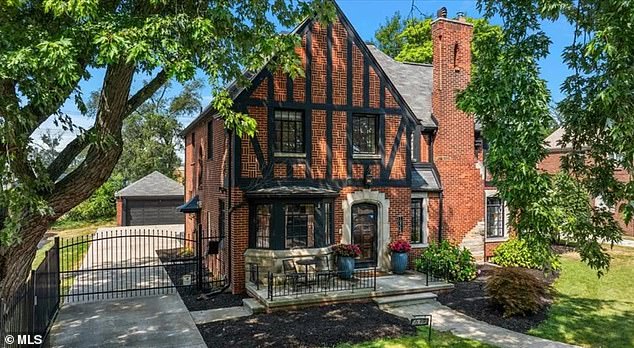
For the Detroit metro area this fall, the 90th percent listing price was $721,625 – around the same price as this Detroit home ($750,000)
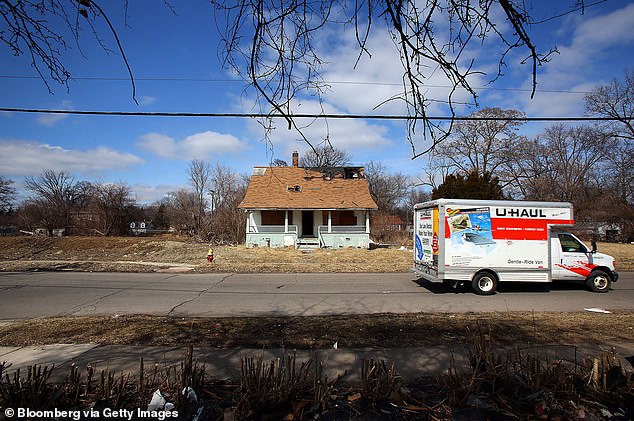
Just over a decade ago Detroit declared bankruptcy and many of its properties became run-down and abandoned (like the home pictured here in 2013)
Even ultra-luxury homes are comparatively cheap. Properties in the city’s top 5 percent of listings are selling for just under $1 million on average. That is almost half the price of the national price of $1.95 million.
At the very top end — the most expensive one percent of homes — prices start around $2.8 million. In other major metros, those kinds of trophy properties easily top $5 million.
Anthony Smith, senior economist at Realtor.com, said Detroit topped the list because demand for high-end homes is strong while prices remain relatively affordable.
‘Homes in this range are also selling faster than most luxury listings nationwide, with a median 57 days on market for million-dollar homes compared with 78 days nationally,’ Smith added.
The ranking covers the wider Detroit-Warren-Dearborn metro area, which includes affluent suburbs such as Bloomfield Hills, Birmingham, Grosse Pointe, and Rochester Hills — all with million-dollar median listings.
Rochester Hills has a median list price of $1,1019,900, Birmingham $1,478,125, and Bloomfield Hills $1,107,500.
Smith explained that Detroit’s top ranking reflects both the prestige of those suburbs and the growing appeal of the city itself, where new investment and development have transformed once-declining neighborhoods.
Detroit has made a remarkable come back, largely because the car industry has begun to pick up speed again.
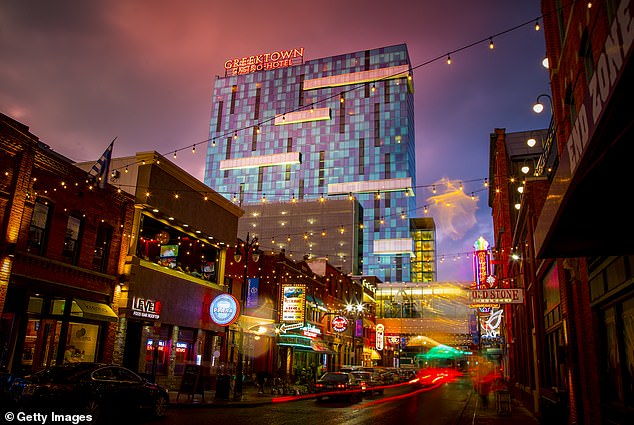
According to Doxo, monthly expenses in Detroit average $1,640, which is 23 percent less than typical costs across the US as a whole
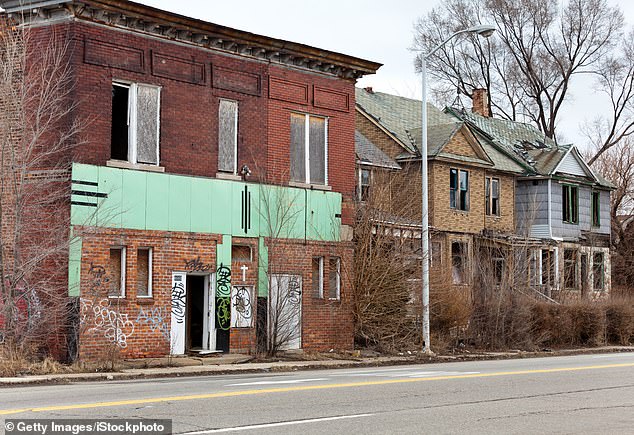
The mortgage crisis and the fall of the big carmakers into bankruptcy drove millions of people from their homes in Detroit (Pictured: Abandoned properties in 2015)
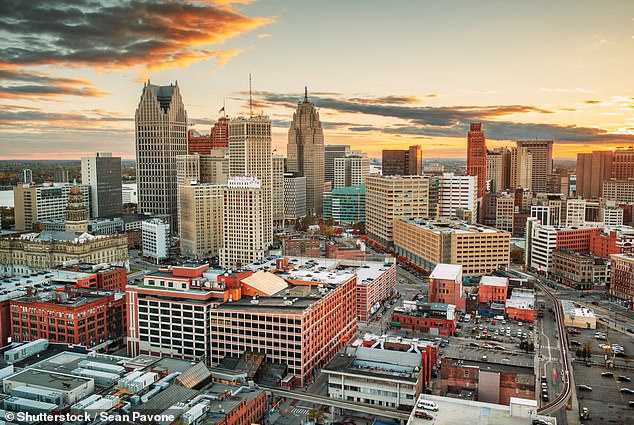
Detroit filed for bankruptcy in 2013 and has since made an impressive comeback
Ford, General Motors and Jeep-maker Stellantis are investing billions. Around them, start-ups tied to car technology and EVs are springing up around them, creating a modern version of the auto belt that first made Detroit rich.
All this has pushed property values higher. Despite the short-term price surge, Detroit still remains affordable as much of its growth was catch-up after years of lagging behind.
In Detroit, people shopping for luxury homes — whether they’re looking at the entry-level of the luxury market or the top tier — are finding that their money goes much further than in other major US cities.
The city offers architecturally significant homes, premier neighborhoods and exclusive amenities for a fraction of what they’d cost in Chicago, New York or San Francisco.
Luxury apartments in Detroit offer community perks, such as fitness centers, pools, and rooftop terraces, and other fancy amenities like concierge services, valet parking, and coworking spaces.
After decades of industrial decline, Detroit is rebuilding itself in a new way — smaller, greener and community-driven.
Locals say the revival of historic buildings and the rise of design-led developments have completely reshaped what ‘luxury’ means in the city.
‘People are drawn to this area because Michigan truly offers something for everyone,’ Liz Watts, Michigan real estate agent with National Realty Centers, told Realtor.com.

In Detroit, people shopping for luxury homes are finding that their money goes much further than in other major US cities
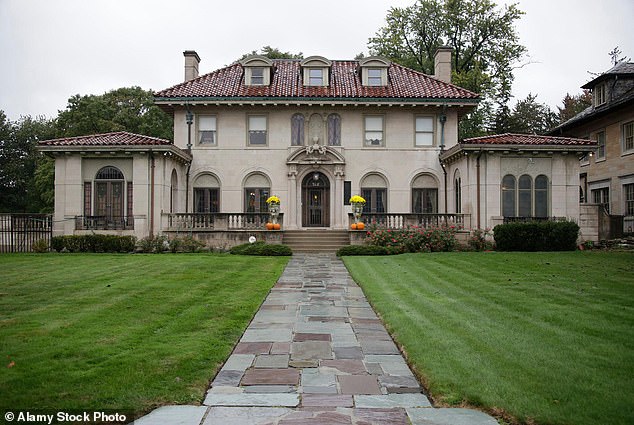
Detroit’s homes in the 95th percentile come in at just under $1 million (pictured: the infamous Motown Mansion)

Realtor.com senior economist Anthony Smith
‘From serene lakefront living and luxurious estates to peaceful country settings and vibrant urban communities, the state provides a diverse range of lifestyles,’ she continued.
‘Residents can enjoy everything from upscale high-rise lofts and well-appointed rental communities to lively nightlife, social events, and a blend of small-town charm and big-city energy.’
Detroit overtook St. Louis as the number one luxury housing market.
St. Louis now ranks second with a median list price of $662,863, followed by Charlottesville ($954,866), Santa Fe ($2,786,250), and Salt Lake City ($1,231,940).
New to the top 10 are San Diego–Carlsbad ($2,880,567) and Hilton Head ($1,799,000), both boosted by coastal appeal and strong demand. The priciest market overall is Santa Maria–Santa Barbara ($8,950,000), ranking tenth.
Other metros showing growth potential include Atlanta, Chicago and Boulder — but few can match Detroit’s comeback story, where the city that built America’s cars is now driving its next luxury boom.
